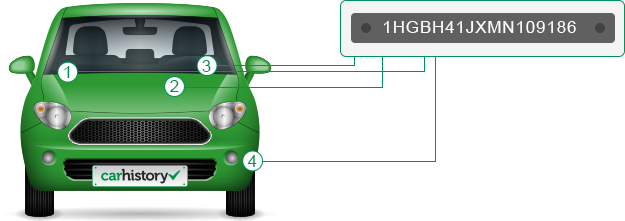
The vehicle identification number (VIN) is composed of 17 characters (digits and capital letters) that act as a unique identifier for the vehicle. A VIN displays the car's unique features, specifications and manufacturer.
The VIN can be found in a couple of places including on the car's registration label (1), on the compliance plate in the engine bay (2) or on the passenger side windshield (3), or on one of the door posts (where the door latches when it is closed) (4). See the image below:
Choosing your next car can be daunting. And with so many options, it's important to figure out what you need in a car and start with clear requirements. Before you begin, there are a few key things to consider when deciding which car is best for your lifestyle and budget.
Your driving habits play a big part in dictating the type of car best suits you and your lifestyle. Things to consider when reviewing your driving habits include:
Knowing these things will help you determine and prioritise the features you need in your next car.
Once you understand your driving habits, it's time to choose the type of car that best meets your needs.
For example, a compact car or hatchback might be perfect for you if you have a short commute and usually drive alone or with one passenger. These types of cars are fuel-efficient and easy to handle in city traffic. On the other hand, if you take long trips frequently or need more space for passengers and cargo, an SUV or a larger sedan might be a better fit.
Consider the needs that come from your habits and what specific features your next car needs to have to meet them. For example, if you have a family, you may put more value on safety features. If you spend many hours driving, fuel efficiency might be at the top of your list. If you have a caravan or boat, having the right towing capacity is essential. Make a list of what's important to you to help narrow your options.
Now that you’re clear on your current needs, it’s time to consider your future plans. For example, space for car seats or driving your kids' friends may be a priority if you have a growing family. If you think you might take on caring responsibilities for elderly family members or take on a pet, you might need more space. You may have a business idea brewing and need a bigger boot to support it. Or perhaps you want to reduce your carbon footprint, so choosing a green vehicle is a priority. Buying and selling cars can be a time-consuming and, at times, costly process, so taking into account any anticipated changes can help save you future stress.
Your next car can significantly impact your daily life and finances, so it's worth taking the time to clarify your needs. Armed with this information, you can narrow your search and start confidently looking for the right car.